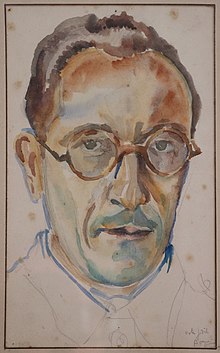Raymond Ruyer
He developed an account of panpsychism which was a major influence on philosophers such as Adolf Portmann, Gilbert Simondon, Gilles Deleuze and Félix Guattari.
Upon his return he was appointed professor of philosophy at the Université de Nancy, where he developed his theories of the philosophical implications of various branches of science, mainly embryology, biology and informatics.
Being opposed to the existentialism and the leftist trends of the French post-war intelligentsia, Ruyer's work was better accepted in scientific circles abroad than in France.
Therefore, based on the assumption that the French public was more fascinated by scientific developments in America, Ruyer published the book The Gnosis of Princeton.
He claimed to be in contact with a group of unidentified American gnostic philosophers who were trying to create a new religion identified as the Gnosis of Princeton, where most of these imaginary scientists were active.
